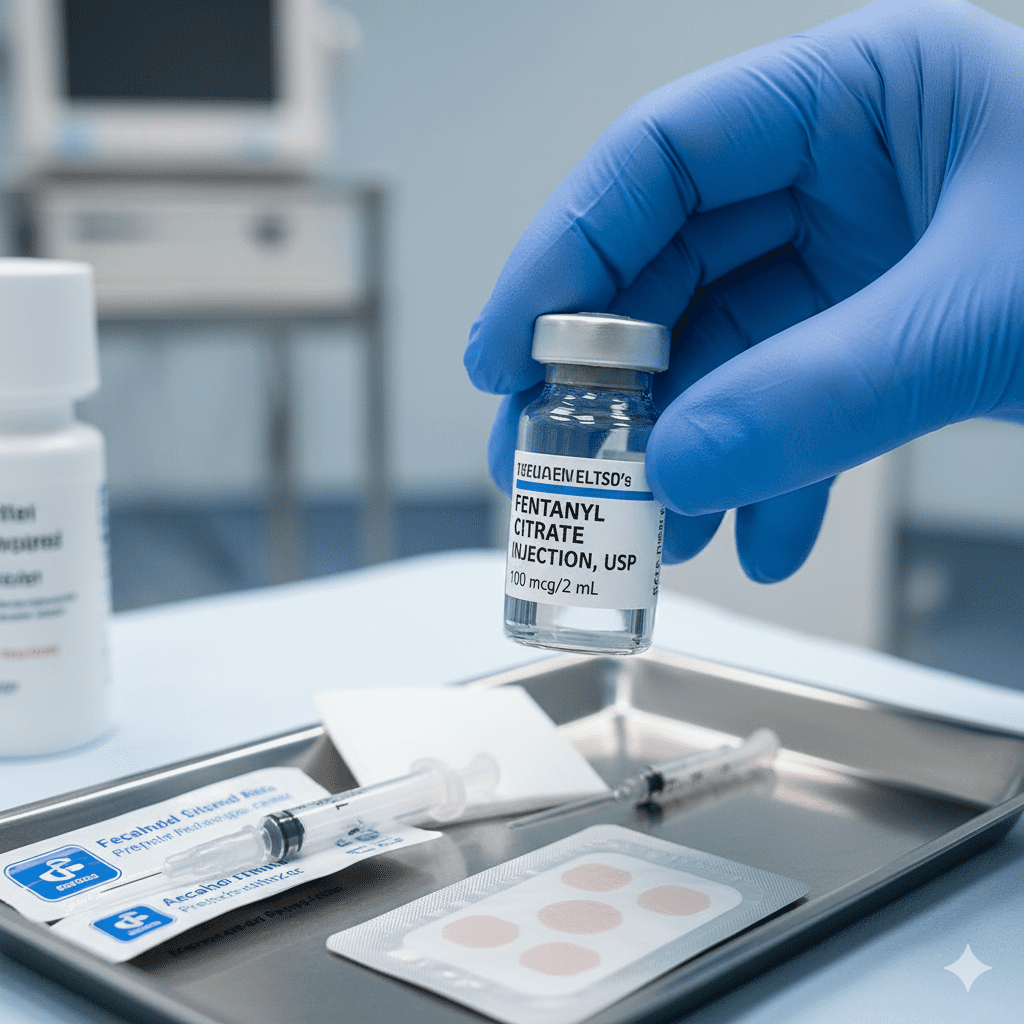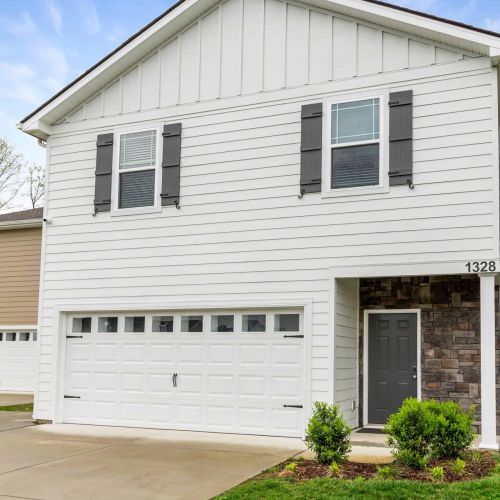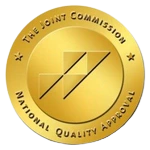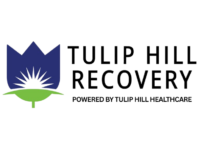Fentanyl Rehab in Murfreesboro, TN
Fentanyl addiction has become one of the most dangerous public health threats in Tennessee and across the nation. This synthetic opioid is as much as 100 times more potent than morphine. Just a small amount can cause a deadly overdose.
At Tulip Hill Recovery, we understand the urgent need for safe, compassionate care for those struggling with fentanyl addiction.
Our fentanyl addiction treatment in Murfreesboro is designed to help individuals break the cycle of opioid dependence and rebuild their lives.
As a trusted, family-owned rehabilitation center in Middle Tennessee, we offer a comprehensive continuum of care, beginning with medical detoxification and continuing through personalized therapy and long-term support.
Recovery from fentanyl is possible, and it starts with the right help.

Understanding Fentanyl Addiction
While it is legally prescribed for managing severe pain, illicitly manufactured fentanyl (IMF) has become a major contributor to the opioid crisis. IMF is often mixed with other drugs, increasing the risk of overdose.
In Tennessee, the impact of fentanyl is profound.
In 2022, over 60% of drug-related deaths in the state involved synthetic opioids, particularly fentanyl.
The Tennessee Bureau of Investigation (TBI) reported a significant increase in fentanyl case submissions, from just three in 2012 to 1,550 in 2019.
The danger of fentanyl lies in its high potency and the prevalence of counterfeit pills laced with the substance. Users may unknowingly consume lethal doses, leading to a surge in overdose deaths.
This alarming trend underscores the need for effective fentanyl addiction treatment in Murfreesboro and across Tennessee.
Signs and Symptoms of Fentanyl Addiction
Fentanyl addiction can progress quickly due to the drug’s potency and highly addictive nature.
Recognizing the warning signs early is critical, especially given the high risk of overdose.
At Tulip Hill Recovery, our Murfreesboro fentanyl addiction treatment program is designed to help individuals and families identify and address these symptoms before the consequences become fatal.
These include:
Behavioral Symptoms:
- Withdrawing from family, friends, and responsibilities
- Secretive behavior or lying about drug use
- Doctor shopping or forging prescriptions
- Continuing to use fentanyl despite serious consequences
- Loss of interest in hobbies or personal goals
Physical Symptoms:
- Drowsiness or sedation
- Constricted (pinpoint) pupils
- Slurred speech
- Nausea, vomiting, or constipation
- Slowed breathing or respiratory depression
Psychological and Cognitive Symptoms:
- Depression or mood swings
- Anxiety or paranoia
- Difficulty concentrating
- Impaired memory and decision-making
- Emotional numbness or detachment
Fentanyl Addiction can be FATAL
One of the most serious risks of fentanyl addiction is hypoxia, a condition in which slowed or stopped breathing reduces oxygen flow to the brain. Hypoxia can result in coma, permanent brain damage, or death.
Because fentanyl is often mixed with other drugs, people may not even realize how much they’ve taken, putting them at even greater risk.
If you or someone you love is showing any of these signs, don’t wait. Reach out to Tulip Hill Recovery for compassionate and effective fentanyl rehab in Murfreesboro. Early intervention can save lives.

Fentanyl Withdrawal and Detox: What to Expect
Fentanyl is one of the most potent opioids in circulation today, and stopping use without help can be extremely difficult and dangerous. That’s why professional fentanyl detox treatment is such a vital first step in the recovery process.
At Tulip Hill Recovery, our medically supervised fentanyl detox in Murfreesboro offers a safe, supportive space to manage withdrawal and begin healing.
When to Seek Help for Fentanyl Addiction
Fentanyl withdrawal symptoms can start within 8 to 24 hours of the last dose and may include:
- Intense drug cravings
- Muscle and bone pain
- Nausea, vomiting, and diarrhea
- Anxiety or panic
- Depression
- Sweating and chills
- Insomnia or restless sleep
These symptoms can be severe, especially without medical support. Going through fentanyl withdrawal and detox alone not only increases your relapse risk but also puts your health at risk.

Why Medical Detox Matters
At Tulip Hill, we provide 24/7 clinical supervision during detox to monitor symptoms, manage pain, and ensure safety throughout the process. This lets clients focus on recovery without the added stress of unmanaged physical or psychological distress.
Levels of Care for Fentanyl Addiction + Dual Diagnosis and Co-Occurring Disorders
At Tulip Hill Recovery, we understand that overcoming fentanyl addiction requires a tailored, step-by-step approach. That’s why our Murfreesboro fentanyl addiction treatment programs meet clients wherever they are in their recovery journey.
As one of the leading fentanyl treatment centers in Murfreesboro, we offer a full continuum of care, from intensive treatment to long-term support.
Our fentanyl detox treatment is the first critical step toward long-term sobriety. Tulip Hill Recovery offers a personalized, medically supervised detox program designed to manage withdrawal symptoms and reduce the risk of complications.
Drug and Alcohol Detox
Our detox programs address your specific needs and are backed by a clinical team that understands how to navigate addiction and mental health and the many complexities they bring.
No matter where you’re starting from, recovery is possible—and it starts here.
Partial Hospitalization Program (PHP)
Our Partial Hospitalization Program (PHP) is ideal for individuals who have completed detox but still need intensive, structured care. Clients attend treatment sessions 5–6 days a week, participating in both individual and group therapy focused on:
- Trauma recovery
- Emotional regulation
- Cognitive-behavioral techniques
- Dual diagnosis support
PHP provides a high level of accountability, helping clients begin to rebuild their daily routines. Each participant works with our clinical team to create a personalized treatment plan and transition strategy for the next phase of care.
Intensive Outpatient Program (IOP)
Our Intensive Outpatient Program (IOP) provides comprehensive treatment with a flexible schedule, making it an ideal option for individuals who live at home, work, or reside in a sober living environment.
Clients attend therapy 3–5 days per week, focusing on:
- Maintaining sobriety
- Managing triggers
- Building relapse prevention tools
- Strengthening emotional resilience
IOP is a critical step in maintaining momentum in recovery after PHP or residential care. It offers continued support without disrupting daily responsibilities.
Outpatient and Aftercare
Recovery doesn’t end when formal treatment does. Our outpatient and aftercare services ensure long-term support and connection, including:
- Weekly or bi-weekly therapy sessions
- Ongoing relapse prevention planning
- Family therapy and education
- Peer support and alumni groups
We believe that lasting recovery from fentanyl addiction is built on ongoing support, structure, and meaningful connection—both during and after treatment.
Clients receive a full assessment upon admission.
A customized detox plan is created, considering medical history and substance use.
Medications may be administered to ease symptoms, including tapering protocols and comfort measures.
Medical staff are available around the clock to ensure safety
Withdrawal symptoms can last 5–10 days, depending on the severity of use and individual health factors. The most intense symptoms typically peak within 72 hours, but emotional and psychological symptoms can persist for longer periods.
Detox alone isn’t treatment, but it lays the foundation for success. Once clients complete detox, they transition into Tulip Hill’s structured programs, such as PHP or IOP, where therapy and continued support help address the root causes of addiction. Our fentanyl detox in Murfreesboro is designed to be the starting point of a complete recovery journey.
Therapies Used in Fentanyl Rehab
Fentanyl addiction impacts every aspect of a person’s life—mental, physical, emotional, and relational. That’s why treatment at Tulip Hill Recovery goes beyond just detox.
We integrate a range of evidence-based and holistic therapies designed to address the causes of addiction, support emotional healing, and equip clients for long-term recovery.
Cognitive Behavioral Therapy (CBT) and Dialectical Behavior Therapy (DBT)
CBT helps clients recognize and challenge the negative thought patterns that often lead to fentanyl use. Through structured sessions, clients learn how to shift their thinking and develop healthier coping mechanisms.
DBT is useful for individuals who struggle with emotional regulation, impulsivity, or self-destructive behaviors.
This therapy focuses on skills such as distress tolerance, mindfulness, and interpersonal effectiveness—essential tools for navigating the emotional ups and downs of early recovery.
Holistic Therapies: Healing the Mind and Body
Recovery isn’t just about abstaining from substances—it’s about creating a balanced, fulfilling life. Our holistic therapies help clients reconnect with themselves through:
- Yoga and meditation for stress reduction and emotional grounding
- Art therapy to process trauma and express emotions nonverbally
- Mindfulness practices to promote presence and emotional regulation
These practices support physical healing, boost mood, and build new habits that reinforce sobriety.
Family Therapy: Rebuilding Relationships
Fentanyl addiction often causes deep rifts in family relationships. Our family therapy sessions facilitate a safe and guided environment for rebuilding trust, enhancing communication, and establishing healthy boundaries.
Loved ones learn how to support recovery without enabling—and how to heal themselves in the process.
Dual Diagnosis Support
Many individuals battling fentanyl addiction also struggle with underlying mental conditions like anxiety, depression, or PTSD. Tulip Hill specializes in dual diagnosis treatment, addressing both issues at once.
This integrated approach ensures clients receive the comprehensive care they need to fully heal and prevent relapse.
Why Choose Tulip Hill for Fentanyl Rehab in Murfreesboro
At Tulip Hill Recovery, we’re more than just another rehab facility—we’re a family-run center with firsthand experience in recovery and a deep commitment to helping others reclaim their lives. As one of the trusted fentanyl treatment centers in Murfreesboro, we provide personalized, compassionate care rooted in evidence-based practices.

State-Of-The-Art Facility

Small Groups, Big Recovery

Clinician & Medical Owned & Operated

Wellness-Focused Bedrooms

Twice‑Weekly Individual Therapy

Fun and Games

Family Therapy Sessions

Conveniently Located near Nashville
Tulip Hill Recovery is conveniently located just outside Nashville, providing easy access to world-class addiction treatment without the distractions of the city. Whether you’re flying in for treatment or visiting a loved one in recovery, Nashville’s International Airport, (BNA), offers quick access to our Murfreesboro facility. This close proximity allows for smoother admissions, flexible travel plans, and the support of family members throughout the treatment process.
When you or someone you love is facing fentanyl addiction, education is just as important as treatment.
At Tulip Hill Recovery, informed decisions lead to lasting change.
Alongside our clinical support, we offer articles, blogs, and guides to help families and individuals better understand addiction, detox, and recovery.
Related Blog Posts
Begin Fentanyl Addiction Treatment in Murfreesboro Today
At Tulip Hill Recovery, we provide safe, supportive, and evidence-based care designed to help people reclaim their lives from the grip of fentanyl addiction.
Our team offers same-day assessments and customized treatment plans that include detox, therapy, and ongoing support. Whether you need inpatient-style structure or a flexible outpatient program, our Murfreesboro facility is ready to walk with you every step of the way.
As one of the trusted fentanyl treatment centers Murfreesboro residents rely on, Tulip Hill provides a full continuum of care for fentanyl abuse or addiction.
Recovery starts with one decision—and we’re here to help you make it.
Frequently Asked Questions About Fentanyl Rehab
Fentanyl is a synthetic opioid that is 50–100 times more potent than morphine. Because of its strength and the way it affects the brain’s reward system, fentanyl can lead to rapid dependence and addiction—even with short-term use. Many people become addicted through prescription misuse, while others develop addiction after exposure to illicit fentanyl found in counterfeit pills or street drugs.
Fentanyl’s potency makes it extremely easy to overdose. Even a tiny amount—just a few grains—can slow breathing to dangerous levels. Many individuals unknowingly consume fentanyl because it is often mixed with heroin, cocaine, meth, or pressed into fake prescription pills. This unpredictability greatly increases overdose risk.
- Common signs include:
- Requiring larger amounts to feel the same effects (tolerance)
- Withdrawal symptoms when not using
- Nodding off or extreme drowsiness
- Mood swings, anxiety, or irritability
- Isolating from loved ones
- Financial or legal problems
If you’re seeing multiple signs together, a professional assessment is recommended.
Fentanyl withdrawal can be severe and uncomfortable. Symptoms often include:
- Intense cravings
- Sweating, chills, and body aches
- Vomiting or diarrhea
- Anxiety, insomnia, irritability
- Rapid heart rate or high blood pressure
Because withdrawal can escalate quickly and lead to relapse, medically supervised detox is strongly recommended.
Yes. Tulip Hill Recovery provides 24/7 medically monitored detox where clients receive:
- Medication-assisted withdrawal support
- Vital sign monitoring
- Comfortable, safe stabilization
- Emotional support and therapeutic interventions
This ensures the detox process is as safe and manageable as possible.
Evidence-based care at Tulip Hill Recovery may include:
- Medication-Assisted Treatment (MAT) such as Suboxone® or buprenorphine
- Individual and group therapy
- Cognitive Behavioral Therapy (CBT)
- Motivational Interviewing (MI)
- Family support and education
- Dual diagnosis treatment for co-occurring mental health issues
Treatment plans are tailored to each client’s medical, psychological, and emotional needs.
Treatment length varies depending on the severity of addiction, co-occurring disorders, and history of relapse. Typical timelines include:
- Detox: 14+ days
- Residential treatment: 30–90 days
- Partial hospitalization or outpatient treatment: additional weeks or months
- Aftercare and continuing support: ongoing
Recovery is highly individual, and Tulip Hill helps each person build an achievable long-term plan.
Fentanyl is highly addictive, and relapse risk can be higher without structured support. This is why Tulip Hill Recovery prioritizes:
- Relapse prevention planning
- MAT when appropriate
- Trauma-informed therapy
- Continued outpatient care
- Sober living referrals
With the right treatment and supports, long-term recovery is absolutely possible.
Reach out to Tulip Hill Recovery to schedule an assessment, verify insurance coverage, or receive guidance on next steps. Whether you are seeking help for yourself or someone else, treatment is available, and recovery is possible.
Get Family Support Now
Supporting Families Through Recovery
We understand addiction affects the whole family. Our comprehensive family program helps rebuild trust and restore relationships.
Weekly Family Therapy Sessions
Educational Workshops
Support Groups
Communication Skills Training
Get Family Support Now



Call or message us

Free assessment

Insurance check

Choose a start date
 |
Medically Reviewed By:
Board-Certified Psychiatrist and Addictionologist
|
 |
Clinically Reviewed By:
Board Certified Clinical Social Worker
|
Our Verifications & Affiliations
Yes, Your Insurance Covers Detox and Rehab Treatment.
Get Family Support Now
Supporting Families Through Recovery
We understand addiction affects the whole family. Our comprehensive family program helps rebuild trust and restore relationships.
Weekly Family Therapy Sessions
Educational Workshops
Support Groups
Communication Skills Training











